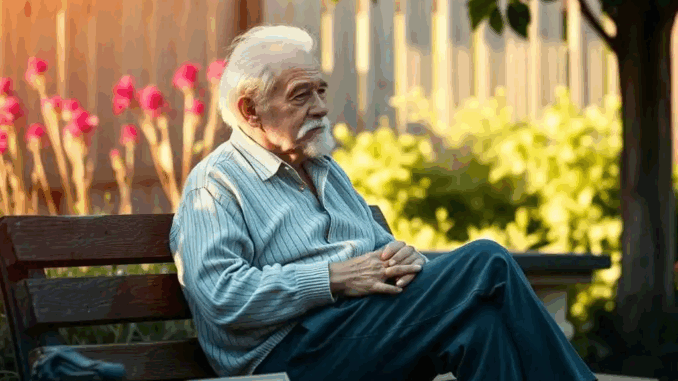

Our god, Antonio López, at seventy years old, was the pillar of our extended family. His word was law, and his wisdom was our compass. All of us—children, grandchildren, and great-grandchildren—respected him and relied on his advice. Until recently, of course. Antonio and our late grandmother Carmen were like two men for more than forty years. They raised their two children—our parents—three grandchildren, and three great-grandchildren. We were a close-knit clan, sharing joys, hardships, celebrations, and the occasional disappointment.
They were our lifeline. Their house in a small town near Valladolid, with its well-tended orchard and an enviable garden, was like a second home. Even with age, they managed to keep it immaculate, and we wondered where they got so much energy. We were a textbook family: large celebrations, trips to Lake Sanabria, and, for them, getaways to spas on the Costa del Sol.
We shared expenses, doing everything we could for their well-being. And they, without a doubt, never let us down: jars of homemade preserves, a little money when things got tight, and they even helped pay the mortgage for some new couples. Their love was priceless.
But three years ago, Carmen left us, and everything changed. Antonio was left alone, and it was clear the weight of her absence was weighing him down. He took refuge in household chores, as if digging potatoes could fill the void. We begged him to move to the city—why suffer in the village?—but he, stubborn as a mule, said:
—This is my land. I was born here, and I’ll stay here. I’ll make do with the garden, don’t worry. And Encarna’s giving me a hand.
Encarna, the neighbor, started showing up every now and then. At first, she brought us plates of stew—because Antonio and the stove never got along. At first, we were glad he wasn’t alone. Until one day he moved into his own house. At first, we even thought it was okay: Antonio’s smile returned, his eyes sparkled again. We went to visit him, we tried to stay in touch.
But Encarna… well, we smelled something fishy from the start. We turned a blind eye, though: the important thing was that he was okay. Until, a year after losing Carmen, they announced they were getting married. It left us stunned. Antonio blurted it out as if to say, “It’s sunny today,” and we were helpless.
Not all of us went to the wedding. My father, her eldest son, was furious. He said Antonio had forgotten Carmen too soon, that it was a betrayal. And that’s when the rift in the family began. But the real drama came later, when Encarna, now Mrs. López, showed her true colors.
He imposed his rules. We couldn’t just drop in on them—we had to call, as if we were strangers. Lifelong family celebrations were canceled. Now they spent time with their relatives, as if we had ceased to exist. He even cut off contact with the grandchildren and great-grandchildren, whom he had once adored.
To top it all off, he gave Carmen’s jewelry—which should have remained in the family—to his daughters. We tried to talk to Antonio, but Encarna was always there, controlling every word, forcing him to use the speakerphone during calls. The few moments when she wasn’t there, he avoided us. He became cold, distant, as if under her influence he’d forgotten who we were.
We tried to explain to him that we didn’t want his house or his inheritance. We only wanted our God back, the one who had been our guiding light. But he just kept saying, “Stay away from my new family.” Those words hurt more than a hammer blow. How could someone who had been the center of our lives turn their back on us? And now, what do we do with this family that’s crumbling like a sugar cube in coffee?
Để lại một phản hồi